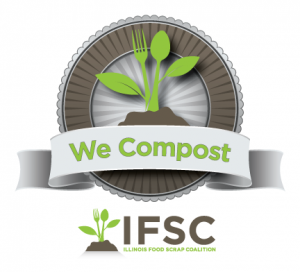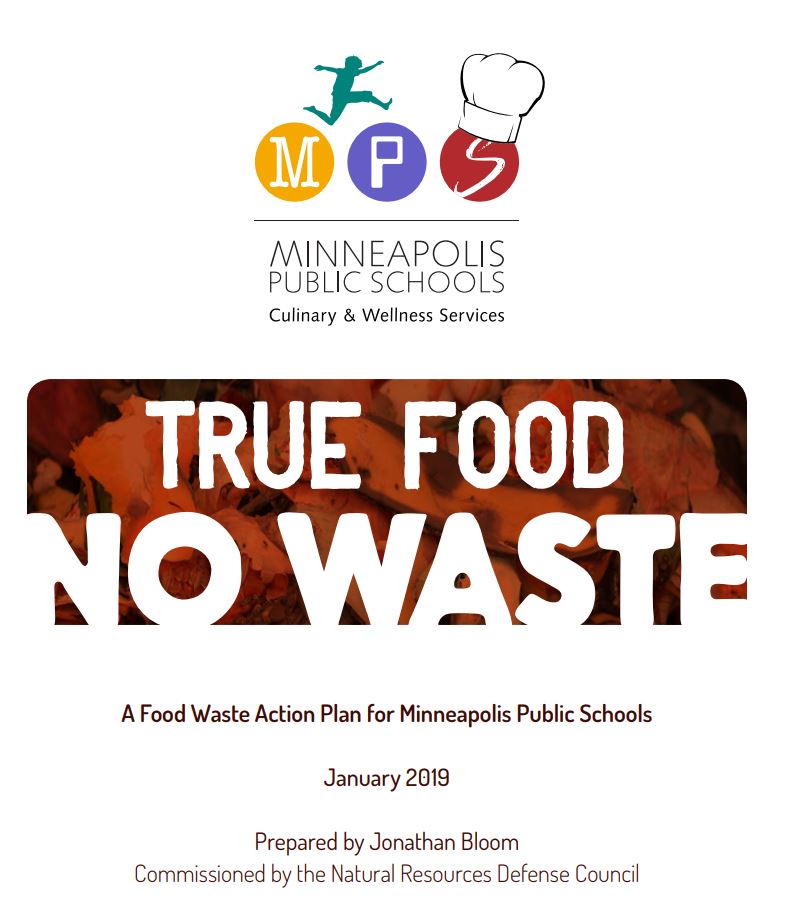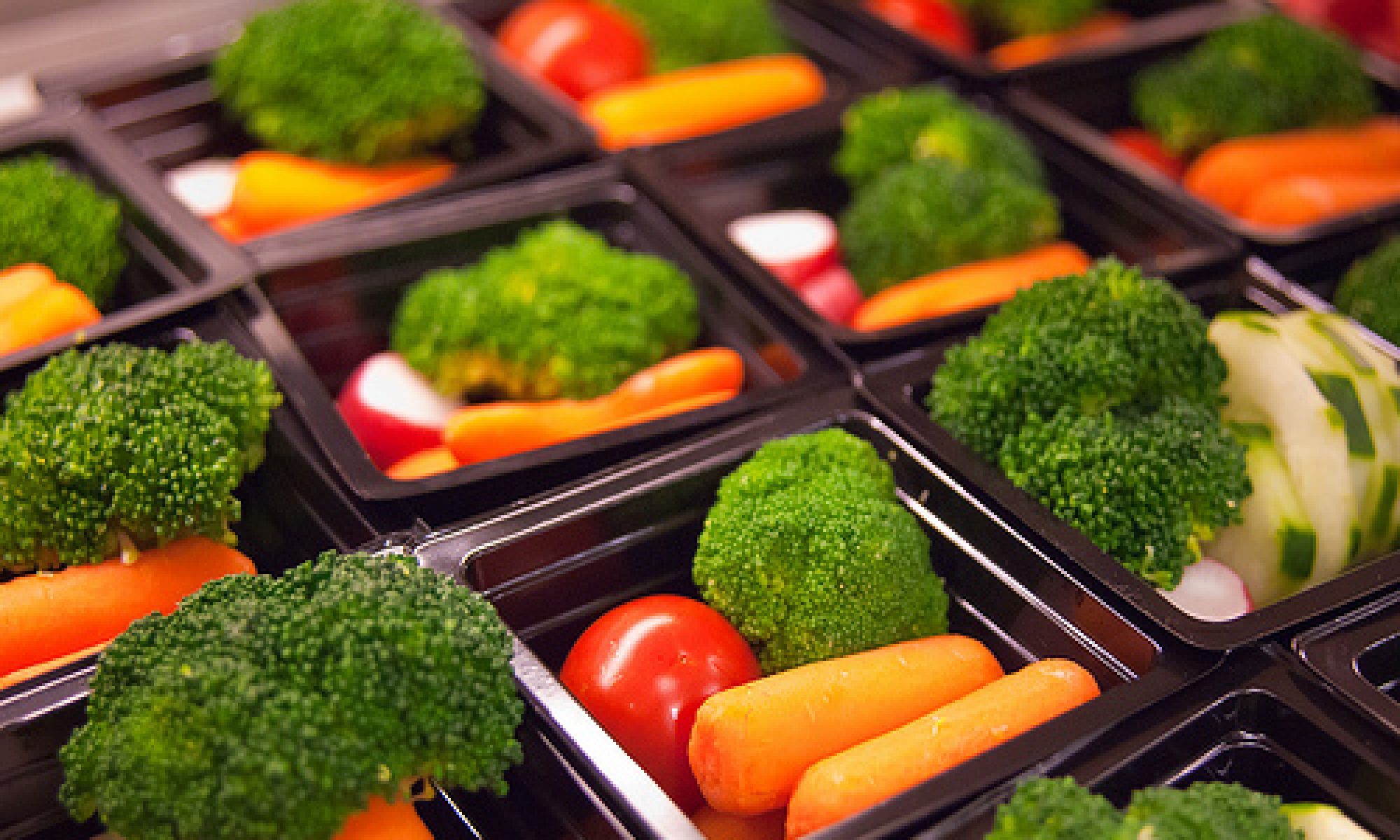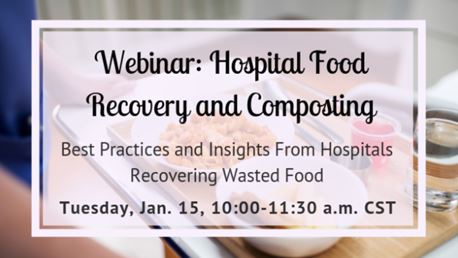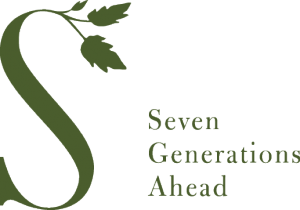We Compost is a free recognition program administered by the Illinois Food Scrap Coalition that promotes businesses and institutions that participate in a commercial compost program. The purpose of the program is highlight entities that compost their food scraps and thus encourage consumers to patronize businesses that are responsibly managing food waste. It also serves as means to encourage institutions, like schools, universities, museums, hospitals, food pantries, churches, governmental organizations, municipalities, etc. to compost their food waste, and raise awareness of the importance of composting by publicly sharing the practice. Participating businesses and institutions receive a window decal to place on their front door or other prominent location to let stakeholders know they compost.
Until recently, only entities that worked with a commercial composting service could be recognized by the We Compost program. However, many areas of Illinois still don’t have access to a commercial compost service provider. Even so, in those areas, programs like schools, churches, community gardens, etc. may have started on-site compost piles. Additionally, in areas with access to commercial composting, there are sometimes reasons to pursue on-site composting instead. Perhaps an organization doesn’t generate enough food scraps or other organic waste to justify the cost of engaging a compost hauler, for example, or maybe involving stakeholders in the process of creating and tending compost piles or bins is desirable (e.g. at a school or community garden). In any of these situations, programs were sadly not able to receive recognition through We Compost for their efforts to keep organic materials out of landfill.
But now, the IFSC has announced the We Compost program will include a special “Green Partner” level to recognize organizations and businesses that compost food scraps on-site. This level is in addition to the “silver” level for entities employing commercial composting service to divert either pre-consumer (e.g. kitchen prep waste) or post-consumer (e.g. plate waste) scraps, and the “gold” level for entities composting both pre- and post-consumer scraps.
So if, for example, you’re a restaurant in a rural area where commercial composting isn’t available, but you still have a compost bin on your propertyor a school with a garden that has students creating compost from the garden and/or cafeteria, you can now be recognized by IFSC. Fill out this form to apply for Green Level recognition: https://docs.google.com/forms/d/e/1FAIpQLSfCMhCYTt7okcqj10XQccOjThtgDvptyS7wzZ8W764DEDFQvA/viewform.
For more information on the We Compost program, or learn how to apply for recognition for composting food scraps with a commercial service provider, see http://illinoiscomposts.org/we-compost.
If you want to search for a service provider in your area, see the Illinois Composter Facility Map at https://www.google.com/maps/d/u/0/viewer?mid=1qOtNjnsUx0A_7bKrMOc5dsNjU2Y&ll=40.356936414535824%2C-86.22039979285444&z=7.
